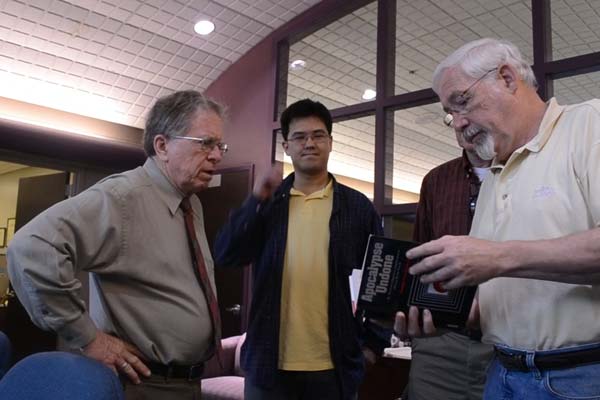
by Ellen Butterfield | May 14, 2015 | News Slider
Nearly 400 letters from a German prisoner of war camp near Chattanooga have been donated to the Beaman Library, where a Lipscomb professor is working to translate them in time for a program in the autumn to observe the 70th anniversary of the end of World War II. The letters were donated by Curtis Peters, who discovered the letters, drawings and photos jammed in a Cornflakes box while cleaning out the house of his wife’s great aunt after she died. The road to Lipscomb for the letters began when Dr. Tim Johnson was in Chattanooga doing historical research into the Mexican War. A woman in a local cafe recognized the Lipscomb professor’s passion for history and introduced him to Peters, who said he hoped the letters could be translated, giving him more insight into his family’s history. That’s when Lipscomb foreign language professor Charlie McVey was contacted, due to his extensive training in German, and the library received the grant that will enable him to translate the letters. Working on these letters shifted his perspective of POW camps in general, McVey said. “I was just flabbergasted that these people were writing these letters back and were so effusively thankful and grateful,” McVey said. “Of course, also in these letters they’re asking for things,” McVey said. “One guy even puts his foot down on the paper and outlined his shoe saying ‘This is the size shoe I need.'” Going from being treated well by the Stribling family, who extended Christian character to their prisoners, to going back to a Germany in shambles was a shock, according to what McVey has...


